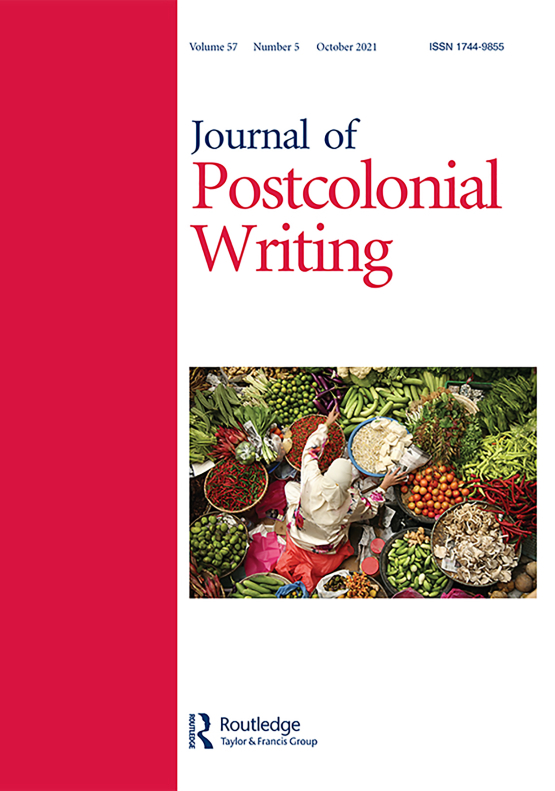Submit a Manuscript to the Journal
Journal of Postcolonial Writing
For a Special Issue on
Arab(ic) Literature 15 Years after the Uprisings: Experimental Forms and Emerging Themes
Abstract deadline
Manuscript deadline

Special Issue Editor(s)
Hiyem Cheurfa,
Larbi Tebessi University, Algeria
hiyem.cheurfa@univ-tebessa.dz
Ghazouane Arslane,
Larbi Tebessi University, Algeria
ghazouane.arslane@univ-tebessa.dz
Arab(ic) Literature 15 Years after the Uprisings: Experimental Forms and Emerging Themes
This special issue aims to explore the impact of the Arab uprisings (known in Arabic as thawarāt, or revolts) on Arab literary expression over the past fifteen years, focusing, particularly, on the formal and thematic aspects of Arab(ic) literature in the post-Uprising era. Beginning in Tunisia in late 2010 and spreading across the region, the ambitiously-termed “Arab Spring” revolts (Achcar 2016) have profoundly reshaped the geo-political and social landscapes of the region, yielding complex and often disappointing outcomes that underscore the lingering legacies of colonialism and the entanglement of national and global hegemonies (al- Barghouti, 2015). The uprisings have also affected the cultural and literary scenes of the Arab world, leading to significant transformations in how stories are told, what themes are explored, and how identities are constructed and expressed in creative means.
This issue will examine the relationship between politics and aesthetics in Arab(ic) literature since 2011. How does literature, in the post-Arab Uprising era, continue to invoke, question, and rewrite (post)colonial histories in the region in light of these renewed pro-democratic aspirations? and through what creative means? How does this literature engage with social consciousness, where revolution and its susceptibility in the Arab context are deeply connected to struggles over power, inequality, and marginalisation (Bishara 2012)? Is postcolonialism dead, as Hamid Dabashi (2012) suggests, or more vital than ever to understanding Arab literature’s engagement with power discourses (Young 2012; Hassan 2017)?
This issue invites submissions on topics that include but are not limited to:
- The influence of the uprisings on the emergence and development of new and/or existing literary genres and formal aesthetics, including graphic literature, speculative fiction, climate fiction, dystopian fiction, and hybrid narratives.
- Representations, fictionalisations, and creative renditions of revolution, protest, and dissent in Arab(ic) literature (in Arabic, English, French, and in translation).
- The relationship between literature and political activism.
- Literary engagements with, and innovative articulations of, displacement, refugees, and exile in the post-uprising era
- The intersection of personal and political struggles and individual and collective memory in post-2011 Arab literary narratives.
- Memory, trauma, and estrangement in post-uprising texts.
- Loss, grief, and literature as a complex form of consolation.
- Arab(ic) literature and the question of the postcolonial in the last fifteen years.
- The role of digital technologies and social media in reshaping literary expression in the post-Arab uprising era.
- The relationship between local, regional, and global forces in shaping Arab literature after the uprisings
Submission Instructions
Abstracts should be between 300 and 500 words (excluding bibliography and 100-word bio note) and sent to both editors no later than 1 September 2025: Hiyem Cheurfa (hiyem.cheurfa@univ-tebessa.dz) and Ghazouane Arslane (ghazouane.arslane@univ-tebessa.dz). Selected submissions will be notified by October 2025. Finished article drafts of 5,000–7,000 words will be due by January 2026. Advanced inquiries are welcome.

